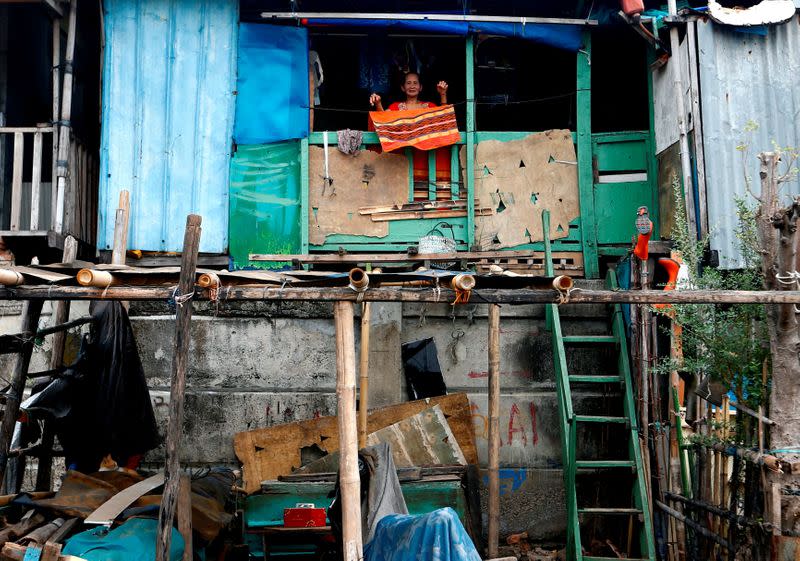Spotlight on Indonesia's slow stimulus as economy shrinks

By Maikel Jefriando and Tabita Diela
JAKARTA (Reuters) - Indonesia's efforts to support its economy through the coronavirus crisis were being hampered by the slow disbursement of a $50 billion stimulus plan, economists said.The World Bank and Indonesian government have warned that millions more people risk being plunged into poverty amid the pandemic, as data showed the economy shrank for the first time since 1999 in the second quarter.
Five months after its launch, only 22.4% of the stimulus had been spent. The package had been split between health and economic recovery programmes ranging from corporate tax exemptions to food and cash aid for households.
David Sumual, Bank Central Asia's chief economist, said that unless the stimulus was disbursed faster the economy risked contracting this year for the first time since 1998.
"Government spending is the only driver of growth right now, especially social programmes," Sumual said.
Just 39% of the 2,739 trillion rupiah ($189 billion) state budget, which includes the stimulus, was spent in the first half of 2020, down from 42% at the same time last year.
In two videos released by his office, President Joko Widodo rebuked ministers for not spending faster.
But ministries are now beginning to focus on finalising next year's budget.
The World Bank has welcomed Indonesia's COVID-19 social programmes, about a third of the stimulus, but said minimal leakage and swift implementation was needed to curb the risk of 5.5 million to 8 million new poor being created.
Around 25 million of Indonesia's 267 million people currently exist below the national poverty line and were living on around $1 a day, the World Bank said.
A flower seller at a cemetery in Padang in West Sumatra, told Reuters last month that his income had collapsed and he had yet to receive government aid.
"We eat what we can. All of our small savings we use to buy rice, eggs and milk for the kids," said Fauzan, 70, who uses one name and is the breadwinner for four family members.
A survey by pollster Indikator Politik published in June showed 60% of Indonesians thought welfare programmes had not reached intended recipients and only 4% were satisfied.
Finance Minister Sri Mulyani Indrawati has cited challenges to spending such as red tape and social restrictions amid the pandemic. Indrawati on Wednesday detailed money spent so far on health programmes and tax incentives, but said financial support was yet to reach companies.
Authorities would reallocate $5 billion to assisting 10 million poor families and 12 million micro-businesses, while cash transfers for workers earning below $344 a month were also being considered, she said.
(Additional reporting and writing by Gayatri Suroyo; Editing by Ed Davies & Simon Cameron-Moore)

